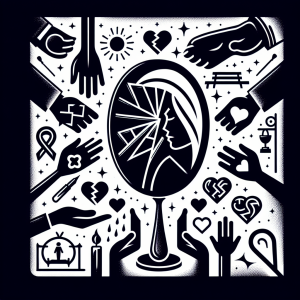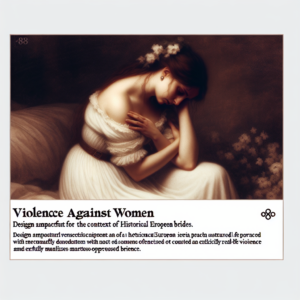The Silent Victims: Domestic Violence During Pregnancy
Domestic violence is a pervasive issue that affects countless individuals around the world. However, there is a particularly insidious form of violence that often goes unnoticed and unaddressed – domestic violence during pregnancy. In the UK, this unspoken epidemic is a shocking reality that has devastating consequences for both the mother and the unborn child.
The Statistics Speak Volumes
According to the Office for National Statistics, an estimated 1 in 4 women will experience domestic violence in their lifetime. Shockingly, this figure rises even higher during pregnancy, with studies showing that as many as 1 in 3 pregnant women will experience some form of abuse. This means that tens of thousands of women in the UK are facing violence and abuse at a time when they should be receiving care and support.
The consequences of domestic violence during pregnancy are profound and long-lasting. Not only does it have a detrimental impact on the physical and mental health of the mother, but it can also have serious implications for the wellbeing of the unborn child. Research has shown that exposure to violence in utero can lead to a range of negative outcomes, including low birth weight, preterm birth, and developmental delays.
The Cycle of Abuse
Domestic violence is often cyclical in nature, with many survivors experiencing abuse throughout their lives. For pregnant women, the cycle of abuse can be particularly difficult to break, as they may feel trapped by their circumstances and fearful of the consequences of leaving their abuser. This can create a toxic environment that not only endangers the mother and child, but also perpetuates the cycle of violence for future generations.
Quote:
“Domestic violence is not just a personal tragedy, but a social epidemic that affects us all.” – Maya Angelou
The Impact on Maternal Health
Domestic violence during pregnancy takes a significant toll on the health and wellbeing of the mother. In addition to physical injuries, such as broken bones and bruises, survivors of abuse are at increased risk of developing mental health problems, such as anxiety, depression, and post-traumatic stress disorder. This can have a profound impact on their ability to care for themselves and their unborn child, leading to further complications during pregnancy and childbirth.
Furthermore, the stress and trauma of living in an abusive environment can have long-term consequences for maternal health. Studies have shown that women who experience domestic violence during pregnancy are more likely to suffer from chronic health conditions, such as heart disease and diabetes, later in life. This highlights the urgent need for comprehensive support and intervention for pregnant women who are experiencing abuse.
Breaking the Silence
Despite the prevalence of domestic violence during pregnancy, it remains a largely hidden and taboo subject. Many women are reluctant to speak out about their experiences for fear of judgment or reprisal, while healthcare providers may lack the training and resources to effectively identify and address abuse. This culture of silence only serves to perpetuate the cycle of violence and prevent women from accessing the support and services they desperately need.
Quote:
“The silence of women is the loudest sound of our time. We must break it, for their sake and for the sake of future generations.” – Malala Yousafzai
It is essential that we work together as a society to break the silence surrounding domestic violence during pregnancy and ensure that every woman has access to the support and resources she needs to protect herself and her unborn child. This includes providing comprehensive training for healthcare providers, implementing screening protocols for identifying abuse, and establishing safe spaces for women to seek help and support.
Conclusion
Domestic violence during pregnancy is a shocking reality that is all too often overlooked in the UK. The consequences of this unspoken epidemic are far-reaching and devastating, with long-lasting implications for both the mother and the unborn child. It is imperative that we break the silence surrounding this issue and take decisive action to support and protect pregnant women who are experiencing abuse. Only by working together as a society can we ensure that every woman has the opportunity to receive the care and support she needs to thrive and flourish.
domestic violence in pregnancy uk
What are some ways companies can improve employee morale and engagement in the workplace?





















